In a heartfelt letter to the editor, Tesse Wilson of Marabella highlights the urgent need for a collective and apolitical approach to addressing crime in Trinidad and Tobago. Wilson argues that crime has become a political tool, exploited by the two main political parties, which distracts from the real suffering of victims and their families. She emphasizes that citizens must set aside political differences and demand that authorities act impartially to ensure swift justice for perpetrators. Wilson stresses that crime is a societal issue that affects everyone, particularly vulnerable groups such as children and the elderly, and calls for zero tolerance toward injustice. To effectively reduce crime, Wilson advocates for adequate resources for law enforcement, proactive policing, a fair judicial system, public cooperation, prison reform, and rehabilitation programs. Additionally, she underscores the importance of addressing community and family dynamics, as these environments shape individual character. Wilson concludes with a plea for the nation to uphold respect for law, order, and the sanctity of life, urging a united, God-fearing approach to tackling crime.
博客
-

Road crash witnesses not reliable
The recent hit-and-run incident on the Churchill-Roosevelt Highway near the O’Meara intersection has sparked urgent calls for improved road safety measures. The tragic event, which occurred at 6:30 am on October 5, claimed the life of Simone Rose, leaving her family and friends devastated. Witnesses reported that the vehicle involved was white, but no further details, such as the make, model, or registration number, were provided. Shockingly, even 36 hours after the incident, no additional information about the vehicle or the driver had surfaced. This lack of critical details underscores the pressing need for functional surveillance cameras at key intersections and major roads across the country. The absence of CCTV footage in this case has severely hindered the investigation, leaving authorities with limited leads. The incident also raises questions about the reliability of eyewitness accounts in such situations. A personal anecdote shared by the author highlights how crucial detailed observations can be in resolving such cases. The author emphasizes that law enforcement cannot solely depend on witness testimonies and must explore other means of gathering information, such as installing cameras and offering monetary rewards to jog the memory of potential witnesses. The tragic loss of Simone Rose serves as a stark reminder of the importance of proactive measures to prevent such incidents in the future.
-
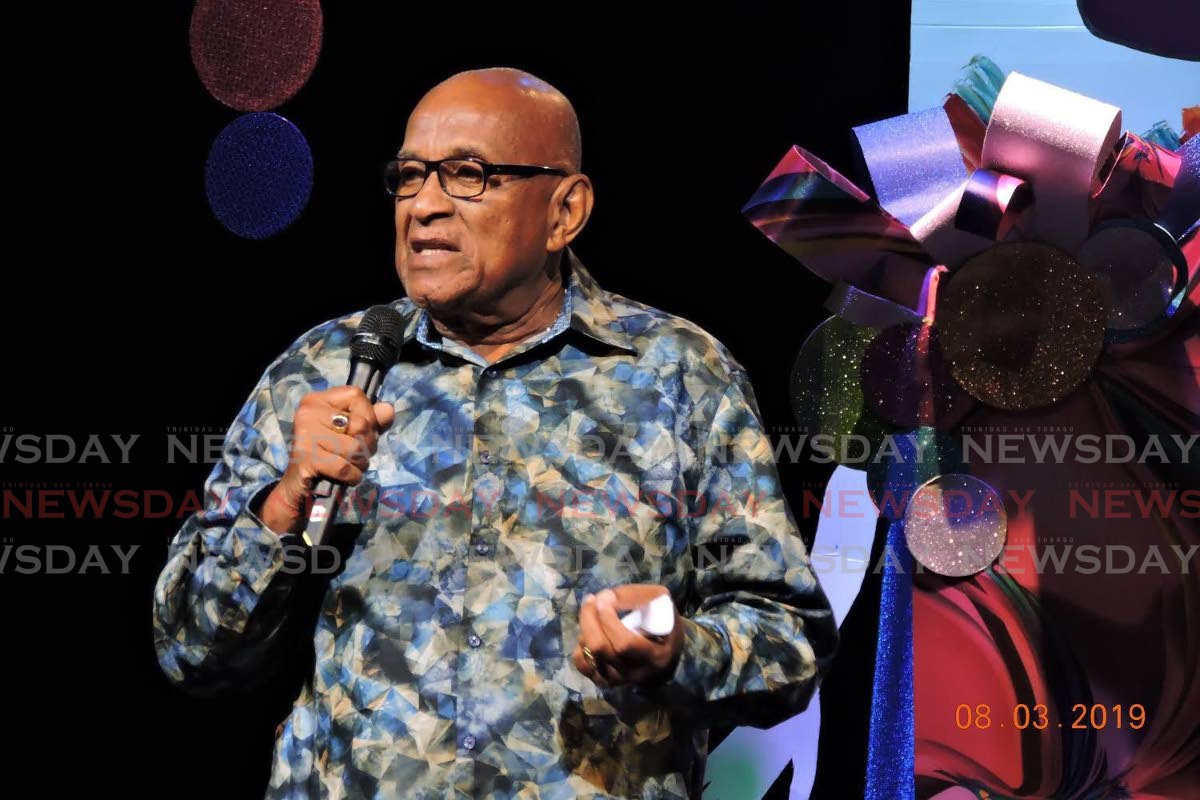
50 years of keeping it clean, real — Paul Keens-Douglas: Ent Dat Nice
For five decades, Paul Keens-Douglas has been a cornerstone of Caribbean storytelling, blending humour, language, and cultural pride into family-friendly performances. This weekend, the acclaimed writer, dramatist, poet, and producer marks this extraordinary milestone with ‘Ent Dat Nice,’ a special 50th-anniversary edition of his iconic Tim Tim show, held at the Central Bank Auditorium in Port of Spain. The event celebrates a journey that began in 1975 at the Little Carib Theatre, where a simple reading of poems and stories evolved into a cultural phenomenon. Keens-Douglas’s work has transcended borders, reaching audiences worldwide through books, CDs, DVDs, and international storytelling festivals. His beloved characters, such as Tanti at de Oval and Vibert, have become staples of Caribbean folklore, embodying the region’s wit and wisdom. Over the years, Keens-Douglas has remained committed to clean, family-oriented storytelling, earning the trust of generations of fans. His contributions have been recognized globally, including a Carifesta Award for his lifetime achievements in regional arts. ‘Ent Dat Nice’ not only honours his body of work but also celebrates the audiences who have supported him. The show features guest performers like Avion Crooks, Miguel Browne, Candice Alcantara, and saxophonist Tony Paul, continuing the tradition of live music in his performances. As Keens-Douglas reflects on his journey, he remains dedicated to his craft, currently working on his memoirs and continuing to perform with the same passion that has defined his career. ‘Ent Dat Nice’ is a testament to the enduring magic of Caribbean storytelling and the joy it brings to audiences worldwide.
-

Caribbean culture takes centre stage — Trinis illuminate Disney’s Diwali Dance Fest
The Walt Disney World Resort in Orlando, Florida, is set to illuminate with the vibrant rhythms and cultural richness of Diwali as it hosts the Diwali Dance Fest 2025 from October 9 to 11. This three-day extravaganza will bring together hundreds of performers from across the globe, with a special spotlight on Caribbean artists, including Trinidad and Tobago-born creators and dancers. Among them are cultural ambassador Natasha Laggan and the Devyani School of Cultural Arts, a troupe featuring dancers of Trinidadian, Guyanese, and Jamaican descent. For Laggan, this event holds profound personal significance. ‘I’m honoured to have been invited to cover it,’ she shared. ‘Seeing the Caribbean represented in such a major celebration fills me with pride.’ Laggan will document the event for her global audience, describing it as ‘a true privilege’ to witness Caribbean artistry on such a prestigious stage. The Devyani School of Cultural Arts, founded in 2009, will perform a fusion of Bharatanatyam, Indian folk, and chutney dance. Founder Priya Persaud emphasized the cultural affirmation behind their performance, stating, ‘We’re not just performing – we’re representing, educating, and inspiring.’ The event, now in its third consecutive year, follows the success of the 2024 festival, which garnered international attention and featured performances by over 300 artists. This year’s festivities include a welcome party, an international dance showcase, and a grand Diwali parade, marking a powerful shift toward cultural inclusion and appreciation.
-

Patience Hill stay perfect, surge into Tobago T10 Windball semis
The Tobago T10 Community Windball Championship witnessed thrilling quarterfinal clashes on October 5 at Parade Grounds in Bacolet, Tobago, with Patience Hill Mumbai emerging as the standout team. Continuing their flawless run, Patience Hill secured a resounding 79-run victory over Buccoo United, advancing to the semifinals in style. The team’s top-order batsmen delivered a masterclass, propelling them to an imposing total of 160 for nine. Opener Ancil Nedd set the tone with a quickfire 25 off 11 balls, while Daveon Shangie (78 off 25) and Olando James (45 off 14) combined for a crucial 91-run partnership. Despite losing partners regularly, Shangie’s explosive innings, featuring five fours and eight sixes, ensured a dominant score. Buccoo United struggled in reply, managing only 81 for seven, with Elton Cruickshank (3 for 18) and Alana Smith (2 for 14) leading Patience Hill’s bowling attack. In other matches, Kabs Solutions Roxborough Gunners overpowered Betsys Hope Scrape Up, posting 133 for three and restricting their opponents to 62 for nine. Jahron Alfred’s 61 off 22 balls, including eight sixes, was the highlight. Meanwhile, Jade Monkey Belle Garden Cuzins and Goodwood Knight Riders also secured semifinal berths, with Shane Ali’s unbeaten 46 and Keron McPherson’s all-round performance (57 not out and 2 for 13) proving decisive.
-
![[UPDATED] $m Manuel Congo site shut down – Illegal quarry boss nabbed](https://wp.caribscopeonline.com/wp-content/uploads/2025/10/0ad08bfeb98b046337c8ee32bb9484fb.jpg)
[UPDATED] $m Manuel Congo site shut down – Illegal quarry boss nabbed
In a decisive early-morning raid on October 9, heavily armed police dismantled a sophisticated illegal quarrying operation in Manuel Congo, Guanapo, east Trinidad. The operation, which had been under surveillance for over a year, was described as one of the most environmentally devastating and financially lucrative illegal activities in the region. The raid resulted in the arrest of 19 individuals, including the quarry owner, who police identified as a major figure in the illegal quarrying industry with operations spanning two decades. The site, which had been previously shut down in July, had quietly resumed operations before being permanently closed during the raid. The quarry, equipped with advanced machinery and a fully air-conditioned administrative building, was responsible for clearing acres of virgin forest, mining hills, and processing minerals into construction materials like red sand, sharp sand, and gravel. Police Commissioner Allister Guevarro condemned the operation as a theft of national resources, emphasizing its ecological and financial toll. The investigation will now focus on the financial networks and real estate portfolios linked to the quarrying profits, with police vowing to prosecute those involved rigorously.
-
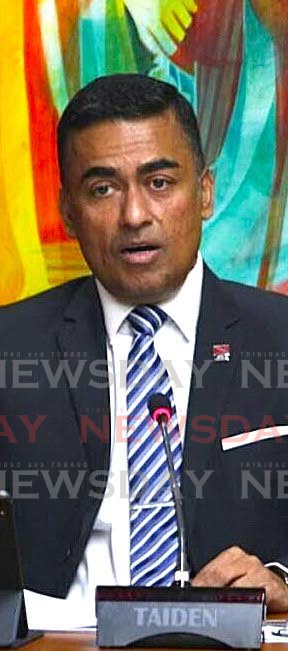
That stubborn 10 per cent
Amidst severe financial constraints, the government remains committed to fulfilling its pledge of a ten per cent salary increase for public servants during the 2014-2019 period, as promised during the election campaign. This commitment, however, places the administration in a precarious position, given the current economic challenges of declining revenue, rising debt, and the potential threat of a credit rating downgrade. Finance Minister Davendranath Tancoo is reportedly grappling with the complexities of reconciling this promise with other pressing national priorities, as evidenced by the delayed announcement of the national budget, which is typically presented by early October. The situation is further complicated by the unresolved wage negotiations for the 2020-2022 period, raising questions about whether the Public Services Association (PSA) will accept a similar five per cent increase agreed upon by other unions or push for more. Additionally, the settlement with the PSA could set a precedent for other unions, such as the Oilfields Workers’ Trade Union (OWTU), potentially reigniting industrial unrest if parity is not achieved. The government’s decision to offer the PSA a ten per cent increase is not merely a labour agreement but a move that could significantly impact the broader industrial relations landscape, with other unions likely to demand similar terms. As the government navigates these challenges, the future of its relationship with the labour movement remains uncertain, with potentially significant implications for the country’s economic stability.
-
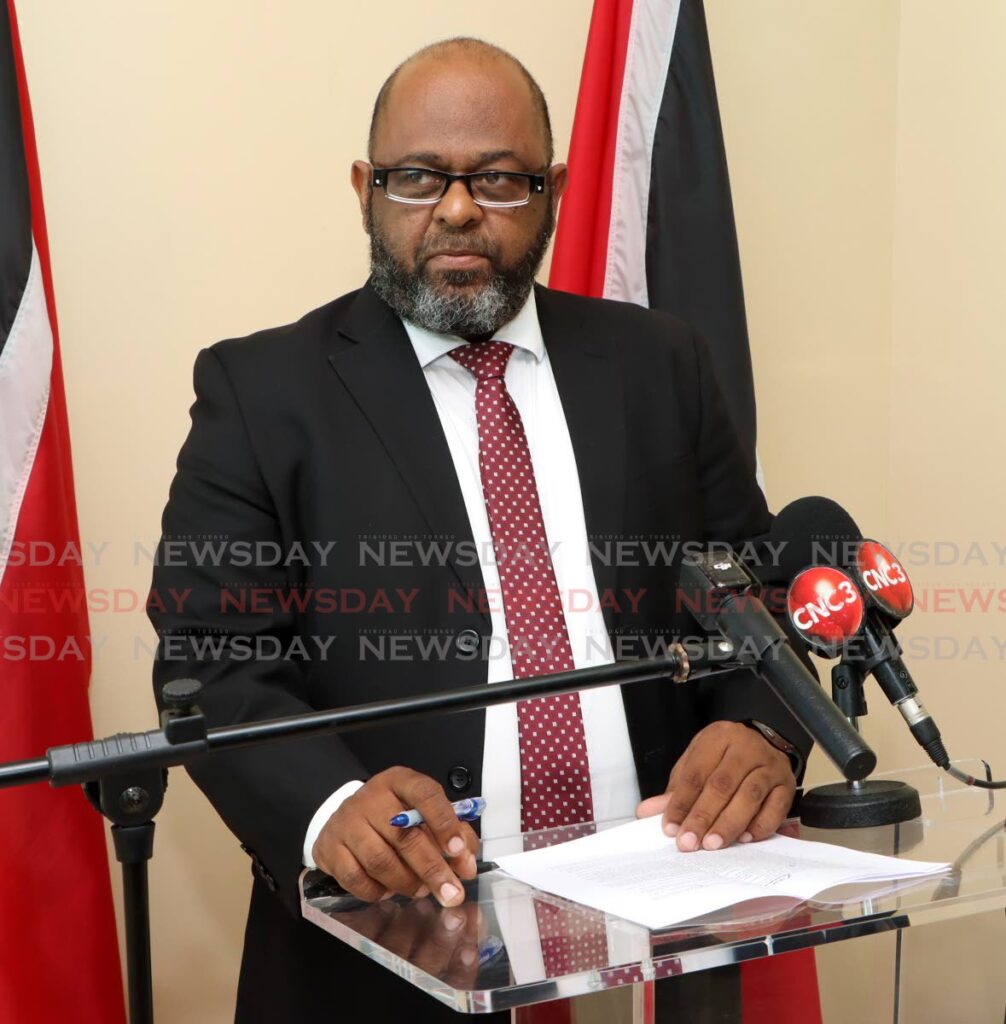
Overnight military shake-up
A significant restructuring within the military leadership has unfolded, raising questions about the transparency and timing of the changes. Defence Minister Wayne Sturge had previously signaled impending reforms in September, criticizing the deteriorating conditions of military bases, the poor state of soldiers’ uniforms, and disparities between senior officers and rank-and-file personnel. He vowed to address these issues “in the coming weeks.”
However, the abrupt dismissal of Air Vice Marshal Darryl Daniel and the appointment of Captain Don Polo as the new Chief of Defence Staff on October 7 has drawn scrutiny. The ministry’s press release stated that the changes were made “after lengthy deliberations and mature consideration,” yet the suddenness of the decision contrasts with this claim. The outgoing leader’s tenure was expected to last another six months, adding to the confusion.
The appointment process itself has raised eyebrows. While Section 191 of the Defence Act governs the selection of the Chief of Defence Staff, the ministry referenced Section 12, which pertains to promotions. This suggests that Capt Polo may have been elevated to a higher rank, such as commodore, to assume the role. The move follows an earlier, unexplained leadership shake-up in August, which was reversed within 24 hours of being announced.
Despite the controversy, the installation of a new Chief of Defence Staff marks a decisive step in reshaping the Defence Council, which oversees military command and administration. The council includes the Defence Minister, the Chief of Defence Staff, and the Permanent Secretary of the line ministry, with a new Permanent Secretary appointed in June.
The Chief of Defence Staff plays a pivotal role in leading the Defence Force, one of the largest in the English-speaking Caribbean. The force is tasked with safeguarding national sovereignty, supporting regional objectives, and responding to disasters—a mission increasingly critical amid the climate crisis. However, the leadership change occurs against a backdrop of heightened tensions, including a state of emergency triggered by the disappearance of 28,000 rounds of ammunition and escalating US-Venezuela relations.
-
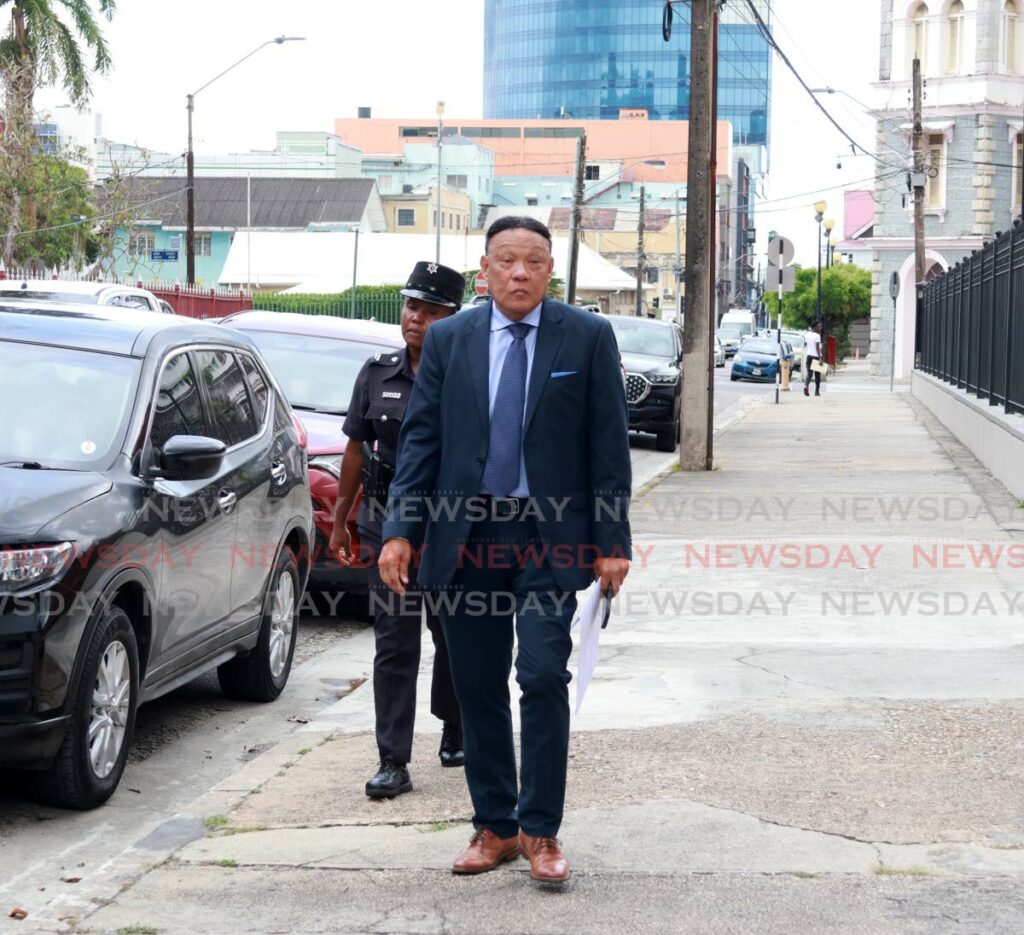
Let courts decide Lee’s fate
Recent developments surrounding Housing Minister David Lee have ignited a heated public debate, with many calling for his immediate dismissal following the re-filing of charges against him. However, these demands have been met with strong opposition from those who argue that such actions undermine the fundamental principles of justice and democracy. Political analyst Professor Hamid Ghany has emphasized that the circumstances of this case are distinct from others, noting that the charges were previously dismissed, suggesting a lack of substantial evidence. He posits that these charges may once again fail under legal scrutiny. The core issue at hand transcends Lee’s political career, touching upon the foundational democratic principle of ‘innocent until proven guilty.’ Prime Minister Kamla Persad-Bissessar has reiterated her confidence in the judicial system, urging the nation to respect the rule of law and due process. This stance highlights the necessity of maintaining fairness and integrity in the face of media trials and political witch-hunts, which threaten to erode the very fabric of democratic institutions.
-
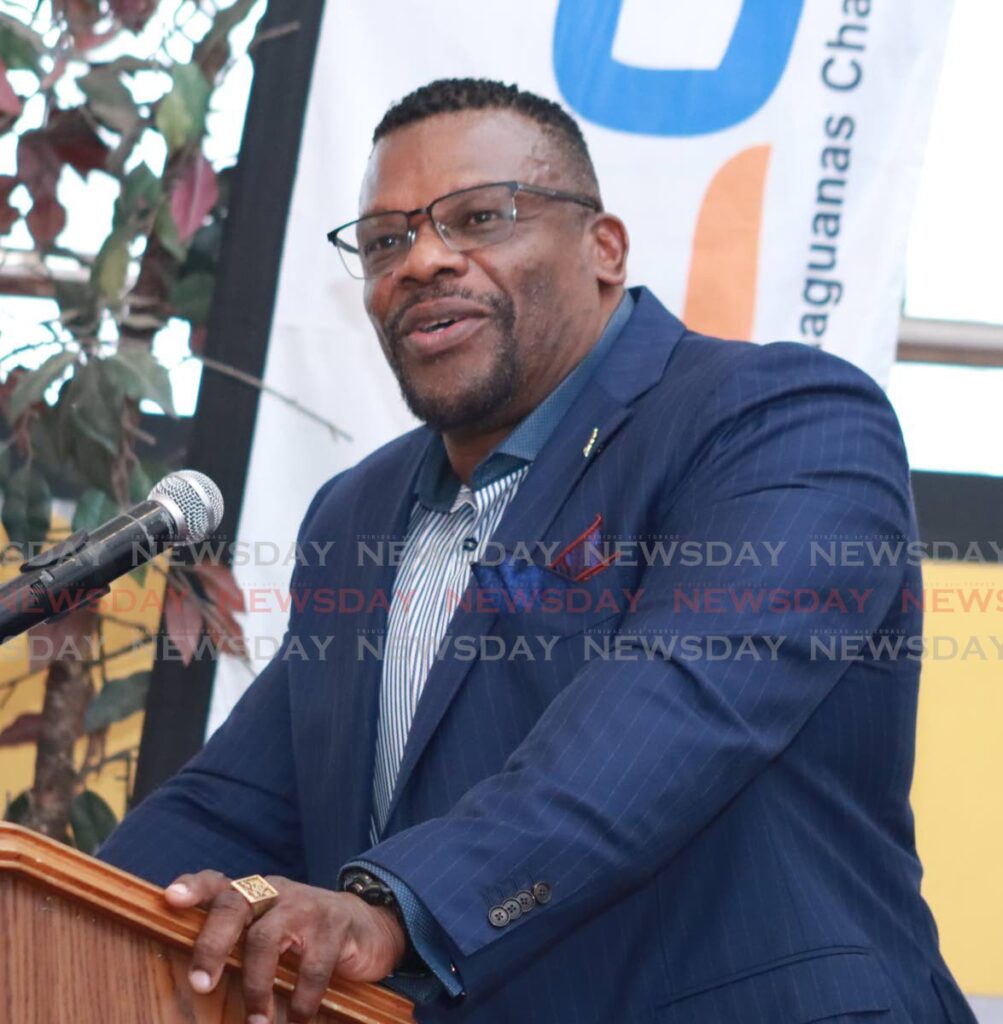
Regressive approach to juvenile justice
A recent proposal by Homeland Security Minister Roger Alexander to try child offenders as adults has ignited widespread concern and criticism. The suggestion, described as regressive and potentially discriminatory, threatens to undo decades of progress in juvenile justice reform. Critics argue that such a policy would disproportionately impact marginalized communities, particularly Afro-Trinidadian youth, and exacerbate cycles of inequality. The international consensus on juvenile justice emphasizes rehabilitation over retribution, grounded in developmental science and human rights principles. Children, lacking the cognitive maturity of adults, require systems that foster growth and reintegration rather than punitive measures. The minister’s proposal risks reinforcing harmful stereotypes and dehumanizing vulnerable youth, portraying them as inherently criminal rather than products of systemic social challenges. Experts warn that harsher penalties will not address the root causes of youth crime, such as poverty, family instability, and limited access to education and mental health services. Instead, they advocate for investments in education, mentorship programs, and community-based rehabilitation to provide young offenders with opportunities for reform. True leadership, they argue, demands a balanced approach that prioritizes fairness, compassion, and long-term societal well-being over punitive measures.
